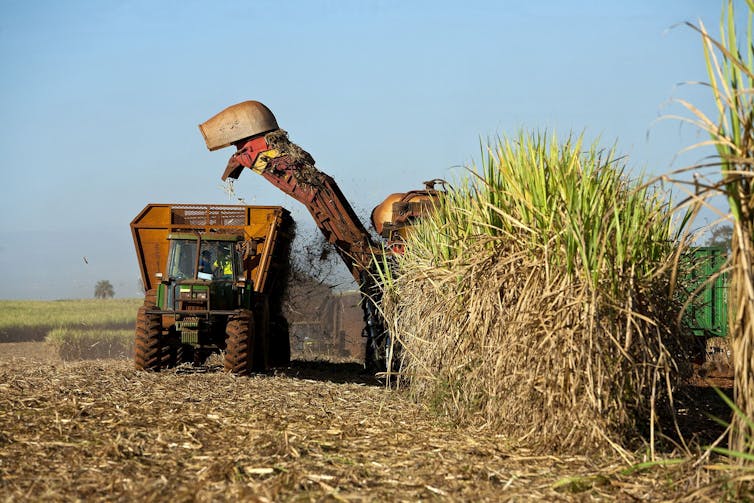Air Travel And Climate Change
It sure looks like jets produce serious amounts of atmospheric pollution including lots of CO2 and thus seriously contribute to global warming. In fact they contribute a small fraction compared to automobiles, 2%, though still a serious amount, and something has to be done about that if we are to avoid the worst consequences of global warming.
Boeing sees the future and is at work in the move to replace jet fuel with biofuels.
Boeing is working with all-737 customer Alaska Airlines and the Port of Seattle to move toward a significant environmental goal: powering all flights by all airlines at Seattle-Tacoma International Airport with sustainable aviation biofuel.
At the airport, executives for the port, the airline and Boeing signed an agreement to launch a $250,000 study that will assess the costs and infrastructure needed to deliver a blend of biofuel and petroleum jet fuel to airplanes there. The airport, commonly referred to as Sea-Tac, is the first in the United States to lay out a long-term road map to incorporate aviation biofuel into its fuel infrastructure in a cost-effective, efficient manner.
Imagine what life would be like without air travel. Not pretty. It therefore becomes very urgent to develop biofuels to replace jet fuel. And now we have something may solve that problem, sugar cane.

We are engineering sugarcane, the most productive plant in the world, to produce oil that can be turned into bio-jet fuel. In a recent study, we found that use of this engineered sugarcane could yield more than 2,500 liters of bio-jet fuel per acre of land. In simple terms, this means that a Boeing 747 could fly for 10 hours on bio-jet fuel produced on just 54 acres of land. Compared to two competing plant sources, soybeans and jatropha, lipidcane would produce about 15 and 13 times as much jet fuel per unit of land, respectively.[....]
Lipidcane offers many advantages for farmers and the environment. We calculate that growing lipidcane containing 20 percent oil would be five times more profitable per acre than soybeans, the main feedstock currently used to make biodiesel in the United States, and twice as profitable per acre as corn.
This is very important for me. I can't imagine how I would get to my favorite European city, Rome, without air travel. Probably a four day train ride to New York, and then a ten day boat ride, and that assumes the trains and boats are themselves using biofuels. This as opposed to three-quarters of one day by aircraft. Bottom line, we are gong to need jet biofuels or we are stuck pretty much where we are for the rest of our lives.


Comments
Post a Comment